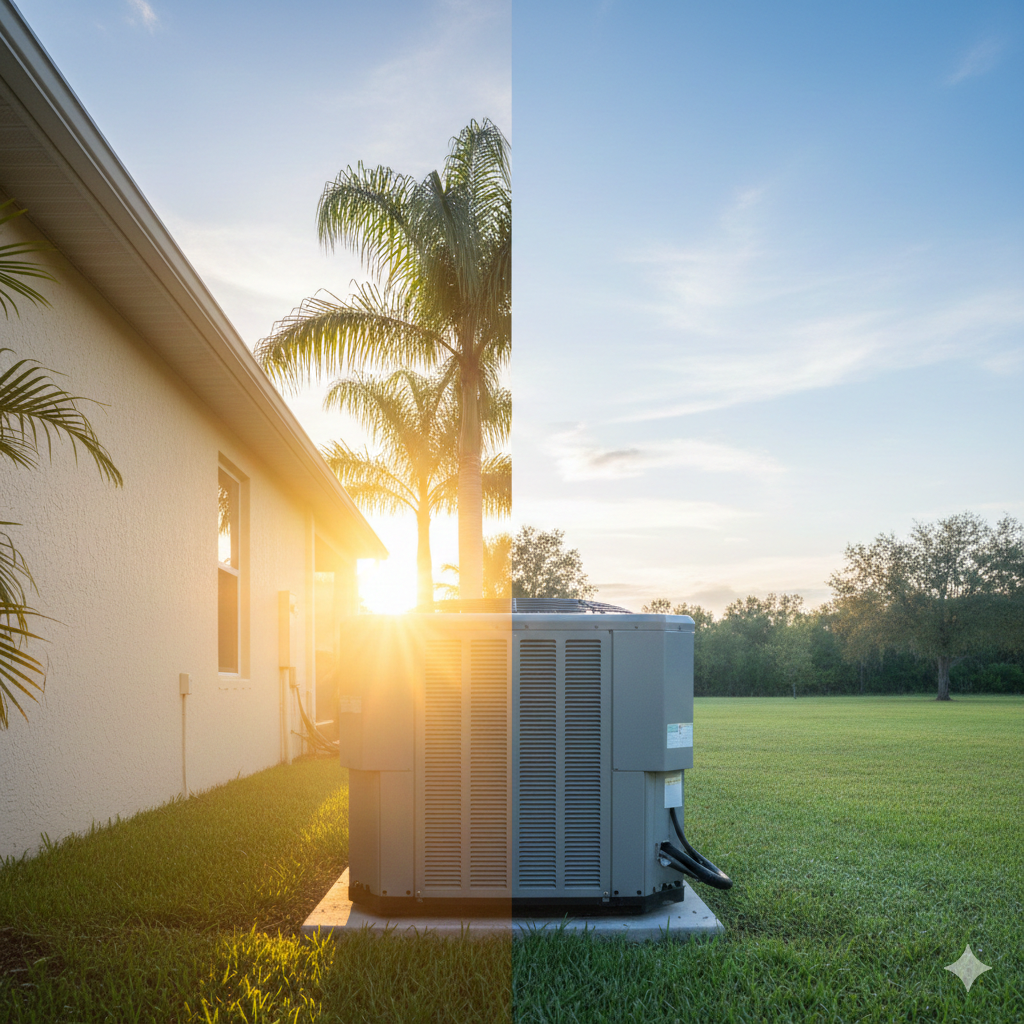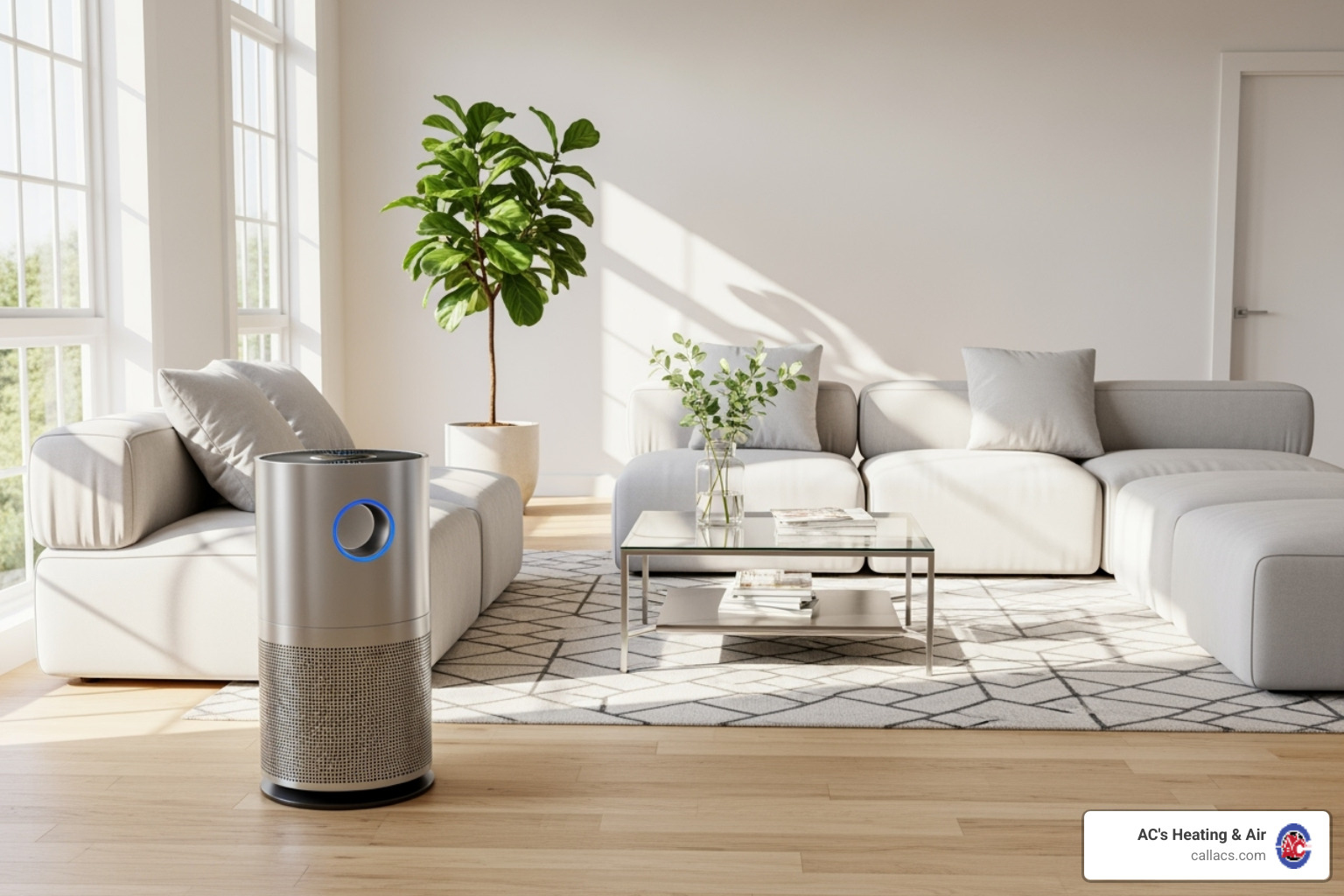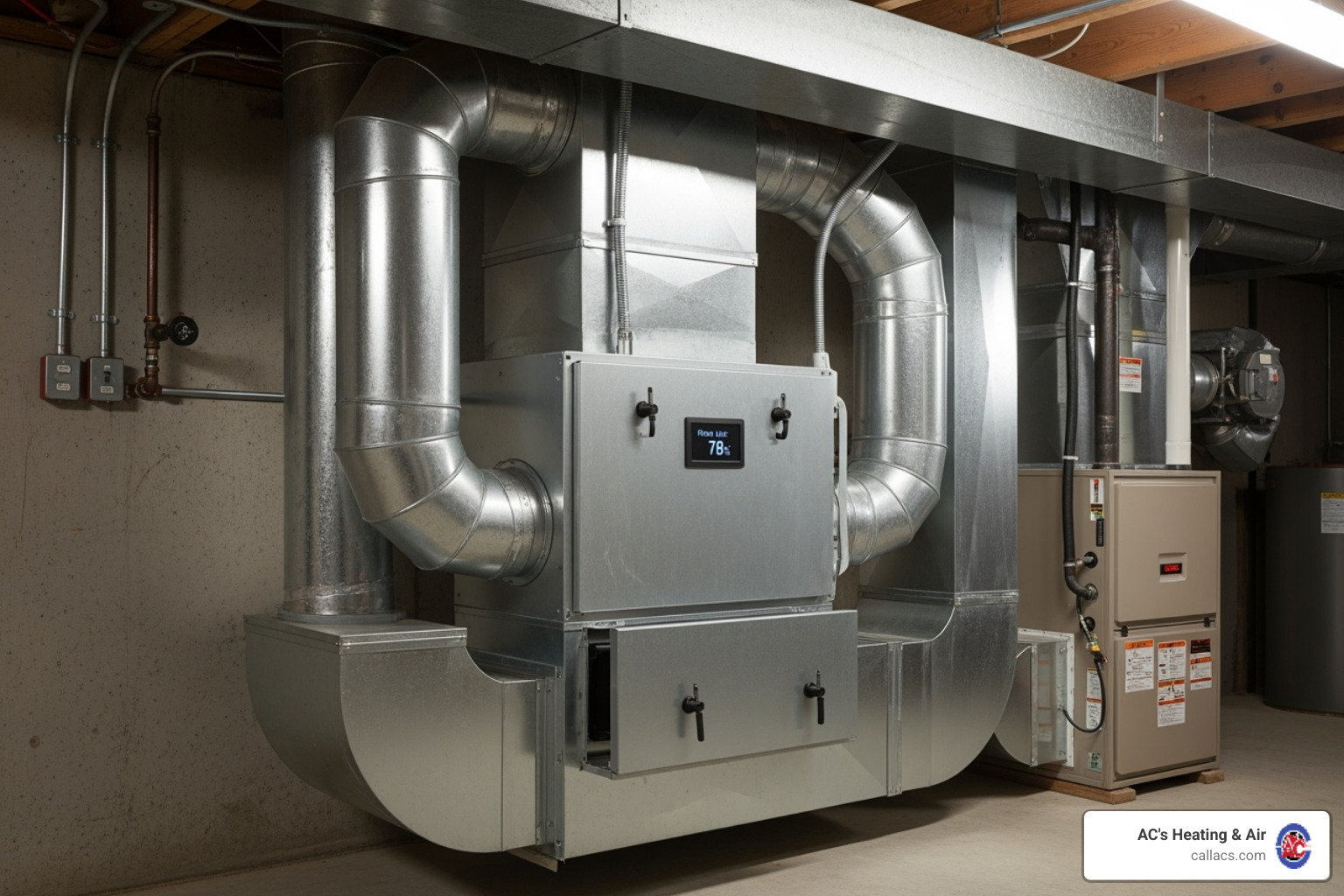Time for a Change: When to Replace Your HVAC Unit

When Is The Best Time To Replace Your HVAC Unit?
HVAC unit replacement is essential for maintaining a comfortable and energy-efficient home environment. Homeowners often wonder when it's time to replace their HVAC systems. To make the right decision, consider the following:
- Age: Most HVAC systems last between 10 to 15 years.
- Frequent Repairs: Regular breakdowns signal it's time to replace.
- Energy Bills: Rising costs often mean decreasing system efficiency.
- Inconsistent Temperatures: Difficulty in maintaining a steady temperature is a red flag.
With a proper understanding of these factors, you can ensure your home remains a comfortable sanctuary year-round.
I’m Allen Chenault, the owner of AC's Heating & Air LLC, dedicated to providing top-notch HVAC unit replacement services. I focus on blending quality with customer satisfaction for seamless transitions to more efficient systems.

Similar topics to HVAC unit replacement:
Signs It's Time for HVAC Unit Replacement
The $5,000 Rule
One of the simplest ways to decide between repair and replacement is the $5,000 rule. This rule helps you weigh the costs of repairs against the benefits of a new unit. To use the rule, multiply the age of your HVAC system by the estimated repair cost. If the result is less than $5,000, a repair might suffice. If it's more, replacement is likely the better option.
For example, if your system is 12 years old and the repair estimate is $400, the calculation would be 12 x 400 = $4,800. This suggests a repair could be reasonable. However, if your repair estimate is $600, the result is $7,200, indicating it's time for a new system.
Efficiency and Performance Issues
As HVAC systems age, efficiency often declines. This can lead to higher energy bills and inconsistent temperatures in your home. If you notice your energy costs creeping up without an increase in usage, your HVAC might be losing its efficiency. Newer models are designed to be more energy-efficient, which can help reduce your monthly bills.
Another sign of declining performance is uneven cooling or heating. If some rooms are too hot while others are too cold, your system might be struggling to maintain a consistent temperature. This inconsistency can be frustrating and often indicates that the system is wearing out.
It's also important to consider the age of your system. Most HVAC units last between 10 to 15 years. If your system falls within this range and exhibits these issues, it's a strong signal that HVAC unit replacement is necessary.

By addressing these signs early, you can avoid unexpected breakdowns and ensure your home remains comfortable year-round.
Cost of HVAC Unit Replacement
Replacing an HVAC unit is a significant investment, and understanding the costs involved can help you plan better. While the average cost for a new HVAC system ranges widely, several factors influence where your final price will land.
Factors Influencing Costs
Unit Type and Brand
The type of HVAC unit you choose significantly impacts the cost. Options like electric furnaces, gas furnaces, and central air conditioning units come with different price tags. For instance, a gas furnace might be more affordable than a geothermal heat pump, but each has its pros and cons based on efficiency and climate needs.
Brands also matter. Well-known brands often cost more upfront but offer better reliability and efficiency. This can save money on energy bills in the long run.
Climate Considerations
Your local climate plays a crucial role in determining the best HVAC system for your home. In areas with hot summers like Orlando, a powerful air conditioner is essential. Meanwhile, regions with colder winters might require robust heating solutions. Choosing a system that matches your climate ensures optimal performance and cost efficiency.
Efficiency Ratings
Higher efficiency often means higher upfront costs but can lead to savings over time. Systems with high SEER (Seasonal Energy Efficiency Ratio) and HSPF (Heating Seasonal Performance Factor) ratings use less energy, reducing monthly utility bills.
Hidden Costs to Consider
Installation and Ductwork
Installation costs vary based on the complexity of the job and whether new ductwork is needed. For example, replacing ductwork in a 2,000-square-foot home can add around $2,100 to your total expenses. Ensure your HVAC technician includes installation and ductwork costs in their estimate.
Permit Fees and Additional Contractor Work
Some installations require permits, which can add to your expenses. Additionally, if your home needs electrical or structural modifications, these can increase labor costs. Always ask for a detailed estimate that includes these potential hidden costs.
Home Size
The size of your home affects the HVAC unit size you need, impacting the overall cost. Larger homes typically require systems with higher capacities, which can be more expensive.
By understanding these factors, you can make informed decisions and budget effectively for your HVAC unit replacement. Up next, we'll explore the best times of year to replace your HVAC unit to maximize cost savings.
Best Time to Replace Your HVAC Unit
Timing your HVAC unit replacement can significantly affect your costs and overall experience. Choosing the right season can lead to better deals and quicker service.
Seasonal Demand and Cost Savings
Most HVAC companies experience a surge in demand during peak seasons—summer and winter. People often rush to replace or repair their systems when they are most needed. This high demand can lead to longer wait times and higher prices.
So, when is the best time to replace your HVAC unit?
Early Spring and Early Fall
The sweet spot for replacing your HVAC unit is during the off-peak seasons: early spring and early fall. During these times, the weather is mild, reducing the immediate need for heating or cooling. HVAC companies are less busy, allowing them to offer more competitive pricing and faster service.
Replacing your system in early spring ensures it's ready for the hot summer months. Conversely, doing it in early fall prepares you for the winter chill. This proactive approach not only saves money but also ensures you won't be caught off guard by extreme temperatures.

By planning your HVAC unit replacement during these optimal times, you can benefit from cost savings and a smoother installation process. Next, we'll address some frequently asked questions about replacing your HVAC unit.
Frequently Asked Questions about HVAC Unit Replacement
How often do HVAC units need to be replaced?
The lifespan of an HVAC unit typically ranges from 15 to 25 years. However, several factors can influence this timeline. Regular maintenance is crucial. Think of it like changing the oil in your car—routine tasks like filter changes and seasonal inspections make a big difference.
The type of system also plays a role. For example, a well-maintained central air conditioning system might last longer than a heat pump used in a harsh climate. Usage patterns matter too. Systems that run constantly, like in a hot climate, may wear out faster than those used less frequently.
What is the average life of an HVAC unit?
On average, you can expect an HVAC system to last around 15 to 20 years. However, this can vary based on several factors:
- Climate: Extreme temperatures can put more stress on your system, potentially shortening its lifespan.
- System Type: Different types of systems have varying lifespans. For instance, geothermal heat pumps are known for their durability, often lasting longer than traditional systems.
- Maintenance: Regular upkeep can extend the life of your system. Simple tasks like changing filters and scheduling annual inspections help your system reach the upper end of its lifespan.
What time of year is the cheapest to replace HVAC?
Timing your HVAC unit replacement can lead to significant cost savings. The best time to replace your unit is during the off-peak seasons—early spring and early fall.
During these times, HVAC companies are less busy, allowing them to offer more competitive pricing. The weather is mild, reducing the immediate need for heating or cooling, which means you won't be in a rush to make a decision.
Replacing your system in early spring ensures it's ready for the summer heat, while doing it in early fall prepares you for winter. This approach not only saves money but also ensures a smoother installation process.
By planning your replacement during these optimal times, you can benefit from cost efficiency and avoid the seasonal rush.
Conclusion
When it's time for an HVAC unit replacement, choosing a reliable and experienced service provider is crucial. At AC's Heating & Air, we pride ourselves on delivering expert installation and maintenance services throughout Central Florida, including areas like Apopka, Winter Garden, and Orlando. Our team understands the unique climate challenges in this region and tailors solutions to ensure your home stays comfortable year-round.
Professional installation is key to maximizing the efficiency and lifespan of your new HVAC system. Our skilled technicians are trained to handle a variety of systems and brands, ensuring a seamless installation process. We also offer customized maintenance plans to keep your system running smoothly, reducing the likelihood of unexpected breakdowns and extending its life.
Living in Central Florida means dealing with hot, humid summers and mild winters. Our local expertise allows us to recommend the best systems for this climate, ensuring optimal performance and energy savings. Whether you're considering an upgrade for better efficiency or need a replacement due to age, we're here to guide you through the process.
Ready to make a change? Let us help you find the perfect HVAC solution for your home. Contact AC's Heating & Air today for a free estimate and find why we're the trusted choice for HVAC services in Central Florida.



